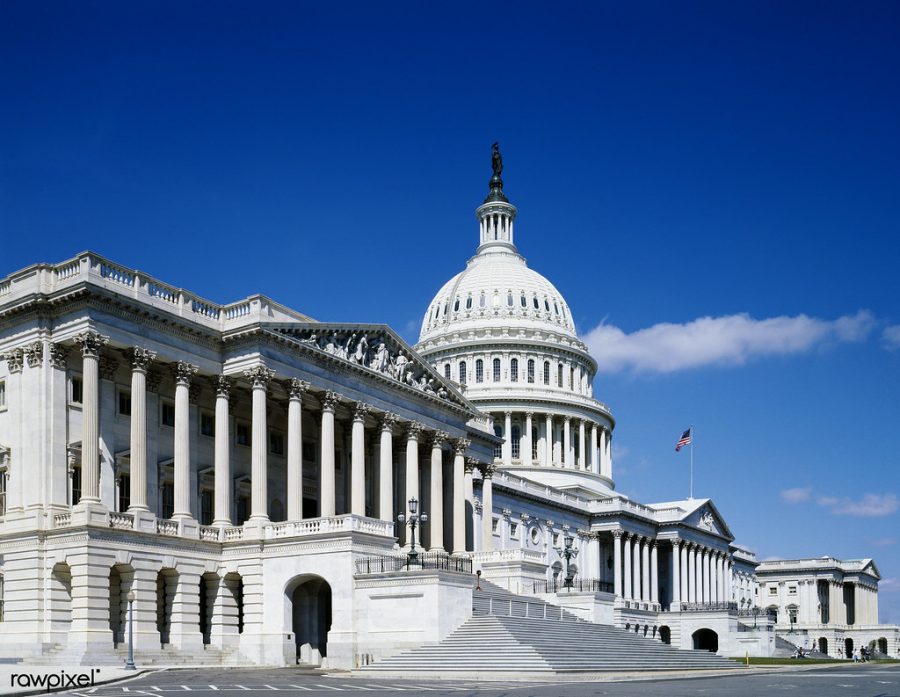The following is a media release from Sen. Ed Markey, who was elected by voters in the Commonwealth of Massachusetts to serve the state in Washington DC in the US Senate. He is a Democrat.
***
[broadstreet zone=”80100″]
WASHINGTON DC – Senator Edward J. Markey (D-Mass.), with Senator Jeff Merkley (D-Ore.), Congresswoman Pramila Jayapal (WA-07), and Congresswoman Ayanna Pressley (MA-07) today announced a growing list of new co-sponsors and endorsers of the Facial Recognition and Biometric Technology Moratorium Act, legislation to stop government use of biometric technology, including facial recognition tools.
Since the legislation was introduced last month, Senators Bernie Sanders (I-Vt.), Elizabeth Warren (D-Mass.), and Ron Wyden (D-Ore.) have joined the list of Senate co-sponsors. In the House of Representatives, Reps. Rashida Tlaib (MI-13), Yvette Clarke (NY-09), Anna G. Eshoo (CA-18), Chuy Garcia (IL-04), Bobby L. Rush (IL-01), Earl Blumenauer (OR-03), Eleanor Holmes Norton (DC), and Ilhan Omar (MN-05) have cosponsored the legislation.

“As the country grapples with its past and decides what type of nation we want to be in the future, a growing group of individuals and organizations are saying loud and clear that it’s time to stop the proliferation of technologies that invade our privacy and put vulnerable populations in harm’s way.” said Senator Markey.“I’m proud to be fighting for a future that is free of invasive and racist surveillance tools, and I thank my colleagues in the Senate and House of Representatives as well as the groups across the country who have joined the effort to stop government use of biometric technologies.”
“At a time when Americans are demanding that we address systemic racism in law enforcement, the use of facial recognition technology is a step in the wrong direction. Studies show that this technology brings racial discrimination and bias,” said Senator Merkley. “Between the risks of sliding into a surveillance state we can’t escape from and the dangers of perpetuating discrimination, this technology is not ready for prime time. The federal government must ban facial recognition until we have confidence that it doesn’t exacerbate racism and violate the privacy of American citizens.”
[broadstreet zone=”59982″][broadstreet zone=”59983″][broadstreet zone=”59984″]
“As hundreds of thousands powerfully stand up and boldly speak out for racial justice across this country, there is a growing recognition of something we have long known: facial recognition technology is not only invasive, inaccurate, and unregulated but it is also destructive and racist,” said Congresswoman Jayapal. “I’m proud to see momentum behind our legislation that will not only protect civil liberties but aggressively fight back against racial injustice.”
“Facial recognition technology is fundamentally flawed, systemically biased, and has no place in our society,” said Congresswoman Pressley. “I’m grateful to our colleagues in both the House and Senate who have joined us as cosponsors on this bill to affirm the civil liberties of every person in this country and protect their right to live free of unjust and discriminatory surveillance by government and law enforcement.
Additionally, the following organizations recently endorsed the bill: Campaign for Commercial Free Childhood, Surveillance Technology Oversight Project, Amnesty International, Restore The Fourth, National Association of Criminal Defense Lawyers, LGBT Technology Partnership and Institute, Public Citizen, Center for Digital Democracy, Council on American-Islamic Relations, CenterLink: The Community of LGBT Centers, Defending Rights & Dissent, Montgomery County Civil Rights Coalition, Algorithmic Justice League.
[broadstreet zone=”70106″][broadstreet zone=”70107″]
“Facial recognition threatens the death of our anonymity as we go about our daily lives,” said Alex Marthews, National Chair, Restore The Fourth. “When inaccurate, it is inaccurate in racist ways; and if it is ever made perfectly accurate, it will be even more terrifying. We are delighted to support this timely legislation.”
“Black people throughout our communities already experience disproportionate abuses of privacy and basic rights, and facial recognition only exacerbates these abuses,” said Michael Kleinman, Director, Amnesty International USA’s Silicon Valley Initiative. “We believe the Facial Recognition and Biometric Technology Moratorium Act is an important step towards dismantling systemic racism and abusive mass surveillance in law enforcement.”
“America should not be a surveillance society. The government has no business using facial recognition or other biometric technologies to track our whereabouts, chill protest in the streets or spy on people of color,” said Robert Weissman, President, Public Citizen. “The threat posed by the intended use of these technologies is matched by the dangers of their high rate of inaccuracy, especially for Black and brown people. Public Citizen applauds Senator Markey for once again leading the way to protect Americans’ privacy and civil liberties.

“The introduction of powerful surveillance technologies like face recognition into the criminal justice system, with little transparency or accountability, is exacerbating racial inequities in that system,” said Nina J. Ginsberg, President, National Association of Criminal Defense Lawyers. “Not only are these technologies known to be less accurate when identifying women and people of color, but defense lawyers are often not made aware of their use and are not able to investigate the scientific integrity of the technology. The Facial Recognition and Biometric Technology Moratorium Act of 2020, introduced by Senators Markey and Merkley and Representatives Pressley and Jayapal, goes a long way towards reining in a technology that is too powerful and too faulty to be used by law enforcement.”
“The Facial Recognition and Biometric Technology Moratorium Act of 2020 addresses the inherent danger in allowing unchecked use of facial recognition technology by government agencies and takes action to curb potential abuses,” said Carlos Gutierrez, Deputy Director & General Counsel, LGBT Technology Partnership. “The accuracy of facial recognition technology is very much in question especially when it comes to identifying trans and non-binary individuals where the identification error rates are staggeringly high. Facial recognition technology disparately impacts minority communities such as the LGBTQ+ community and its use by law enforcement and other federal agencies must be halted until the civil rights, privacy and bias issues triggered by this technology have been adequately addressed and regulated. Congress should act quickly to address these issues.”
“We have a right to go about our daily lives without being relentlessly tracked by our government. But face recognition technology is always watching, feeding our faces into algorithms, storing our faces in databases, comparing our faces to others,” said Sue Udry, Executive Director, Defending Rights & Dissent. “Congress should immediately pass the Facial Recognition and Biometric Technology Moratorium Act to protect us from this invasive technology.”
“The Council on American-Islamic Relations (CAIR) endorses Representative Jayapal’s Facial Recognition and Biometric Technology Moratorium Act of 2020, as a means to prevent federal agencies and law enforcement from abusing such technologies, including A.I. With unmarked DHS officers under the Trump Administration’s direction actively surveilling and arresting Black Lives Matter protestors in Portland – and threatening to extend that unconstitutional policing nationwide – we cannot trust such flawed technologies in the hands of law enforcement,” said CAIR Director of Government Affairs Department Robert S. McCaw.

The Facial Recognition and Biometric Technology Moratorium Act would:
- Place a prohibition on the use of facial recognition technology by federal entities, which can only be lifted with an act of Congress;
- Place a prohibition on the use of other biometric technologies, including voice recognition, gate recognition, and recognition of other immutable physical characteristics, by federal entities, which can only be lifted with an act of Congress;
- Condition federal grant funding to state and local entities, including law enforcement, on those entities enacting their own moratoria on the use of facial recognition and biometric technology;
- Prohibit the use of federal dollars for biometric surveillance systems;
- Prohibit the use of information collected via biometric technology in violation of the Act in any judicial proceedings;
- Includes a private right of action for individuals whose biometric data is used in violation of the Act and allows for enforcement by state Attorneys General; and
- Allow states and localities to enact their own laws regarding the use of facial recognition and biometric technologies.
[broadstreet zone=”58610″]

